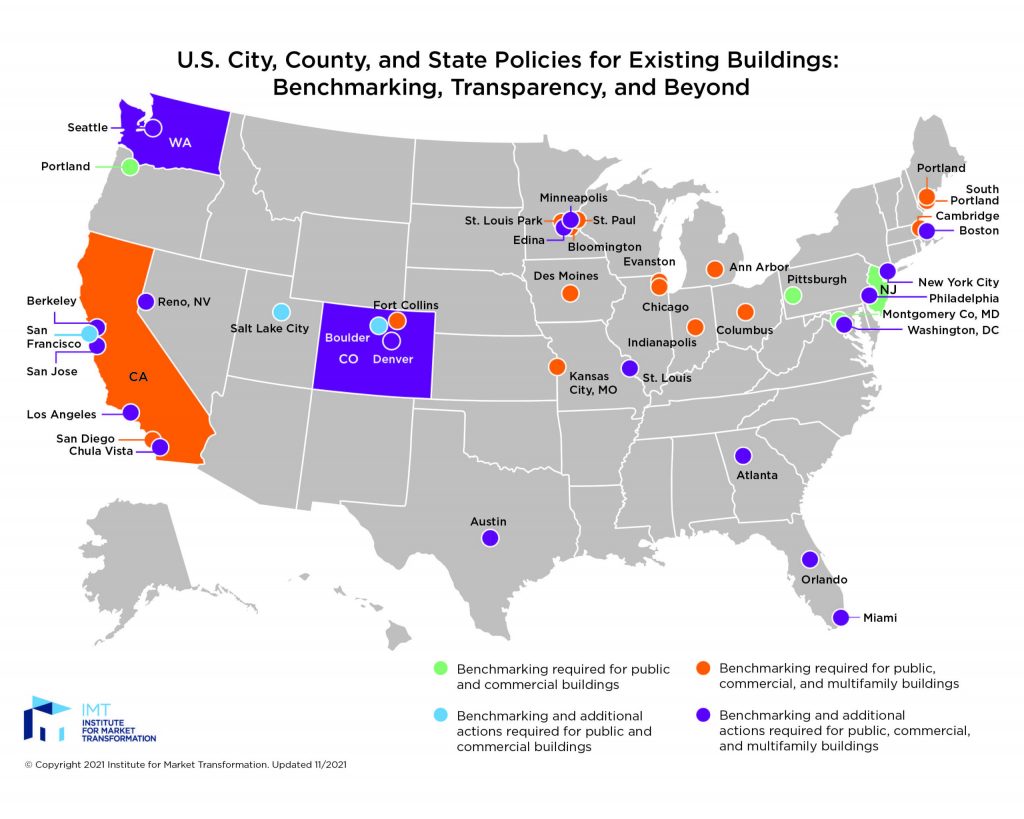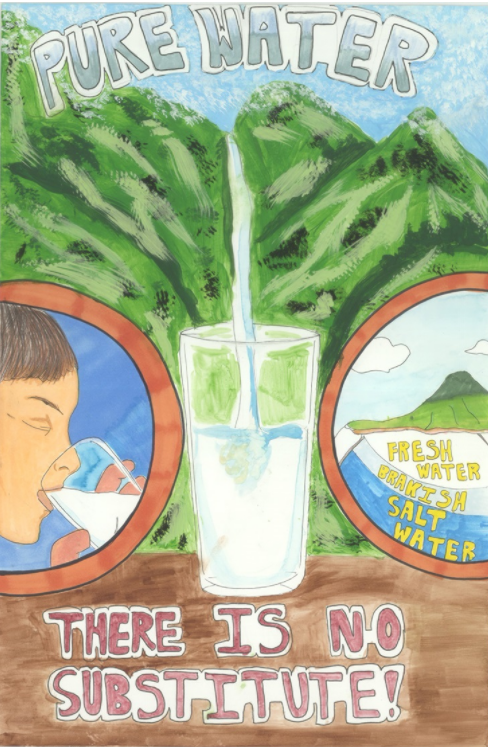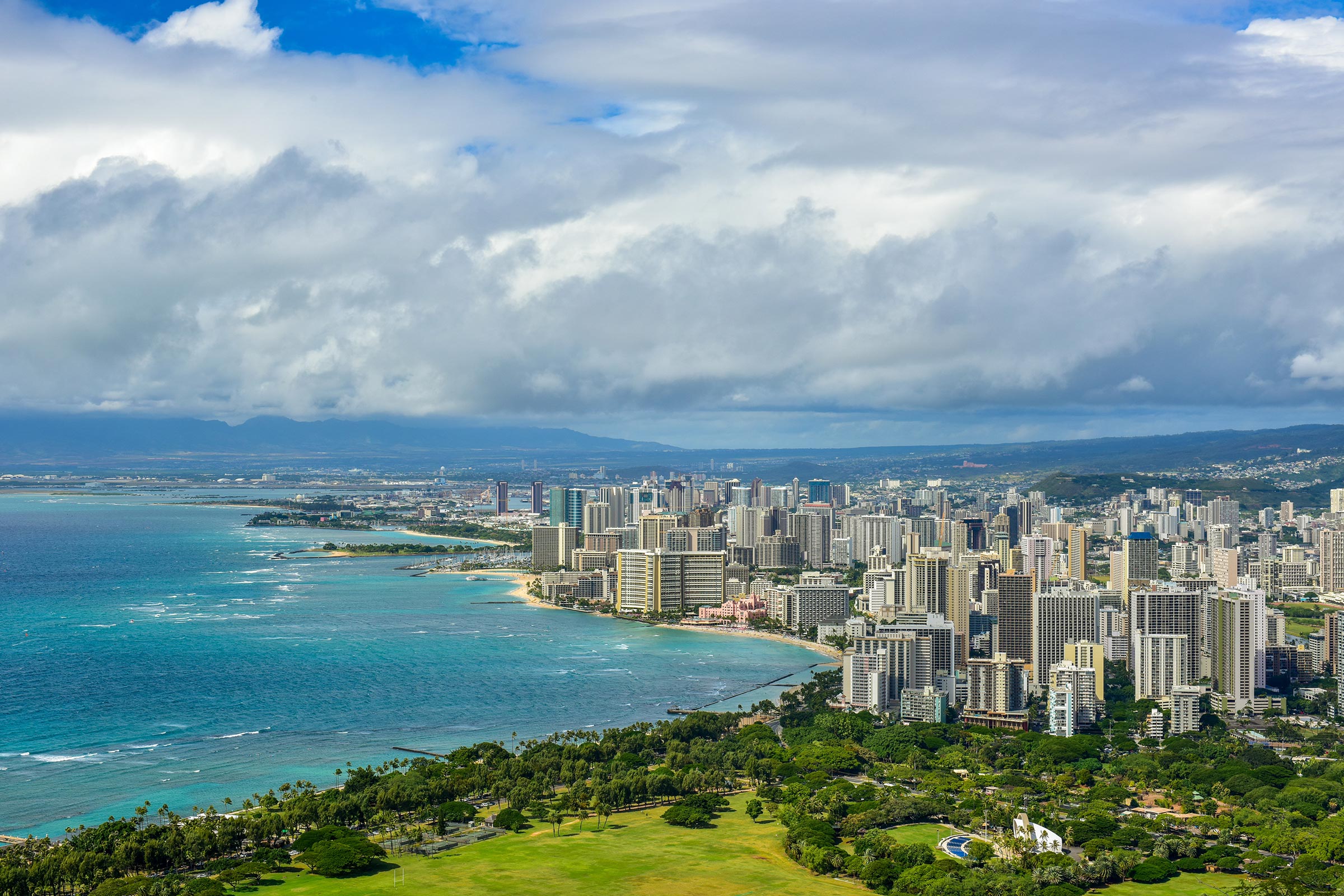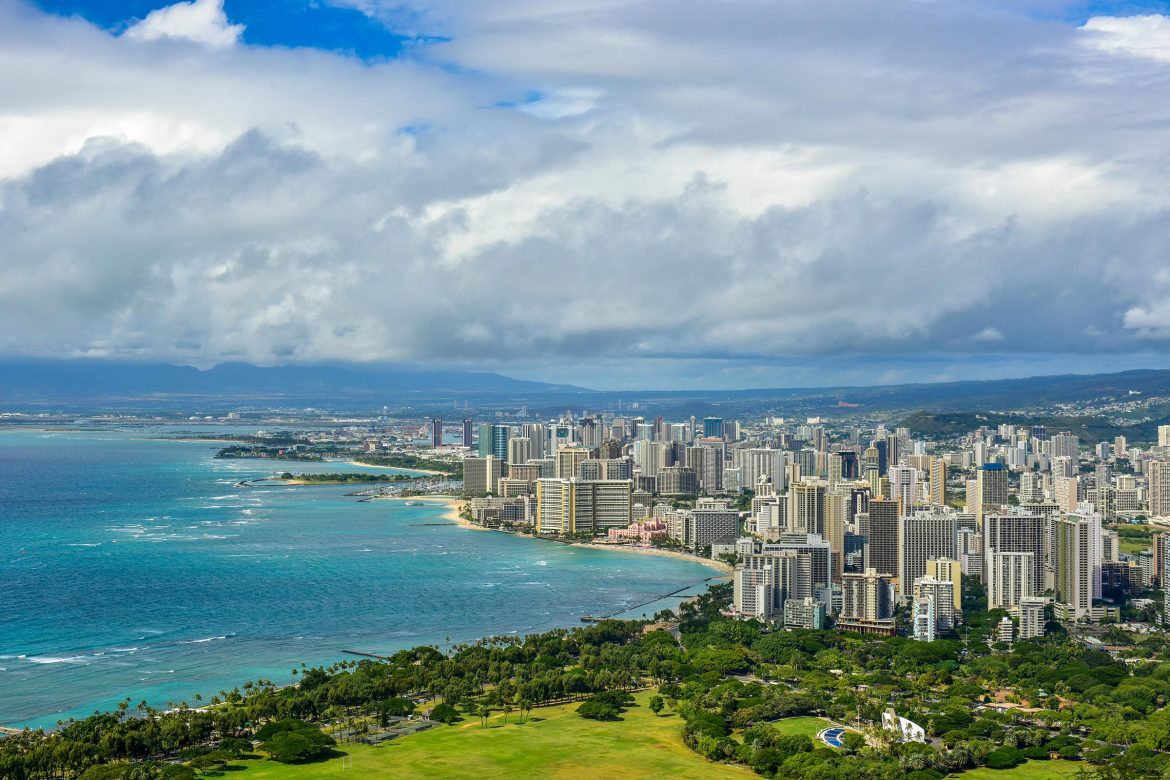The NRDC Action Fund is driving climate action in cities across the country through the American Cities Climate Challenge.
Update, July 6: Honolulu’s City Council today unanimously passed the benchmarking and transparency policy to cut costs and carbon pollution, save energy, and save precious water. Speakers at the council meeting included environmental groups, utilities, and others demonstrating widespread community support. Groups including Hawai’i Electric, Hawai’i Energy, Elemental Excelerator, and Honolulu Board of Water Supply all spoke in favor of the bill’s passage. For building owners ready to get started immediately to save energy and cut costs, Hawai’i Energy offers training and resources here.
Honolulu’s City Council can act now to help building owners cut costs by tracking their energy and water use, enabling them to save money, energy, and water.
The energy used in buildings is Honolulu’s second-largest source of greenhouse gas emissions. Passing a new policy on building energy benchmarking and transparency is a key step to get a handle on those emissions and start reducing them.
You can help
Council will be considering the benchmarking and transparency policy for a final vote on Wednesday, July 6 at 10am. To urge support for a strong policy, please email or call your Councilmember today!
Passing this policy will bring Honolulu one important step closer to reaching its Climate Action Plan goal to reduce greenhouse gas (GHG) emissions by 45 percent by 2025 and put the city on the path to carbon neutrality by 2045.
What are benchmarking and transparency?
The rationale behind benchmarking and transparency is simple: you can’t manage what you don’t measure.
- Benchmarking means measuring energy and water use to set a building’s own “benchmark” to compete with and reduce year by year. Building owners can also plug this data into an EPA tool to learn how their buildings stack up against others.
- Transparency requires that owners report the building’s energy and water use every year and that the city compile and publish that data, unlocking critical information to inform action to save energy, water, and money.
Benefits of benchmarking and transparency
Energy use is the highest operating cost of owning a building, and benchmarking helps building owners manage that cost and reduce it.
Energy use in buildings (most commonly for water heating, air conditioning, and lighting) also exacts a high climate cost: 35% of emissions citywide, according to the City’s 2019 GHG inventory. If passed, this benchmarking policy is projected to help save 1.7 million metric tons of CO2 by 2045. These savings will both realize climate goals and improve island-wide affordability.
Benchmarking and transparency can help tenants reduce costs too. It’s a strong consumer protection tool: potential residential and commercial tenants get information they need about their likely utility bills in a given building, for better budgeting and more informed decisions.
Transparency is also a tool to help utilities and public programs identify neighborhoods or buildings with the greatest potential for energy savings and direct outreach and resources to the most energy-burdened communities and lowest-performing buildings.
A tried and true approach
Benchmarking and transparency around energy use is a proven strategy, used since 2008. If Honolulu’s City Council approves this policy, it will follow in the footsteps of 43 other U.S. cities, counties, and states. Cities like Minneapolis, Denver, and Chicago have seen energy savings of 3-5% soon after policy passage, as this tracking encourages building owners and managers to make their own cost-wise improvements.

Map of U.S. City, County, and State Policies for Existing Buildings. Source: IMT.org
Just add water (conservation)
Honolulu is improving on this tried-and-true approach on energy by also tracking water use. Right now, Honolulu residents are more aware than ever of the need to save precious clean water given the contamination of freshwater at Red Hill. Supporting water conservation community-wide will go a long way to safeguard residents’ drinking water supply over time.

“Pure Water – There is no substitute.” Poster by Loko Maikai Lynch of Kapolei Middle School (2016)
It’s time to act
This is a long-awaited policy: Honolulu’s City Council has twice signaled this intention to constituents:
- In December 2020, Council passed Bill 65 (now Ordinance 20-47) in December 2020 to require that the City benchmark energy and water use in City-owned buildings above a certain threshold, enabling the City to test-run a benchmarking program and lead by example.
- In June 2021, the City Council passed the 2020-2025 Climate Action Plan, which building efficiency and benchmarking were identified as key to dramatically reducing Honolulu’s GHG emissions.
Now it’s time for the City Council to deliver on this promise. To support this policy to lower emissions, save residents money, and conserve precious water, email your Councilmember today.


